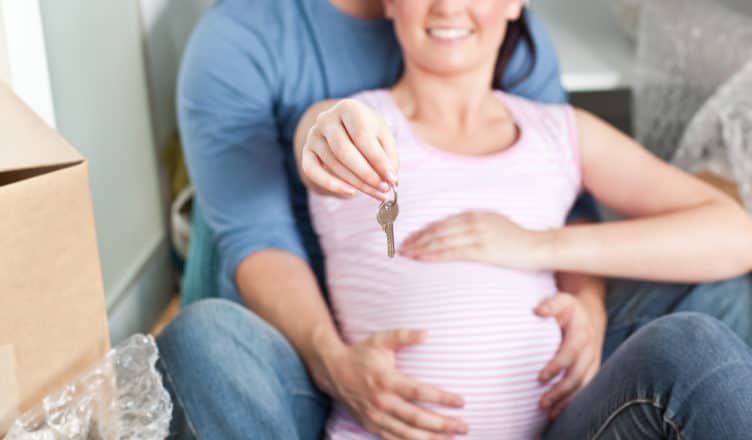When anticipating a baby, many families find themselves thinking about moving to a new home.
A lot of the time, it’s from the need for bigger space as the family grows. Other times, it’s the need to move to a better location. Or a more welcoming community. Or search for better opportunities.
That need to create a more conducive environment for their newborn often sees many expectant parents pull up stakes from their current place in favor of a different neighborhood, city, or state.
However, the big question is – when is the best time to hire a professional moving and storage NYC company to help with the move: is it during pregnancy, or is it best to wait until the baby comes first?
Well, it depends on a lot of things. Perhaps the best way to answer this would be to highlight the advantages and disadvantages of each option. Then from that, you can make a decision that favors you and your family better.
Advantages of Moving While Pregnant
The biggest advantage of choosing to move before the baby comes is that you have more time (and energy) to direct to moving preparations, meaning you can ready your family nest by the time your child arrives.
In a nutshell, the benefits when moving during your pregnancy include the following:
- There are more time and energy dedicated to searching for a new house and executing the move as there are no newborn needs taking your time.
- You’ll have the time to set up your new home and make all the necessary preparations before the arrival of the baby.
- There is less stuff to deal with as you don’t have a room-full of baby items to move – although this also depends on the stage of the pregnancy you’re in (if you wait till late 3rd trimester you’ll probably have done most of your baby shopping). Otherwise, if you do the shopping after moving, the move will both be easier and cheaper.
- You will have more time to know your surroundings and the neighbors before welcoming the baby. You’ll have the opportunity to build a support system with other soon-to-be parents in the area.
- You will leverage your nesting instinct to create a perfect baby environment that kicks in around the last trimester. By this time, you’ll already be in your new home, so will have the time to set everything up – clean, sanitize, organize, decorate, and make cozy.
- There won’t be any stressing about an upcoming move when the baby comes, affording you peace of mind and the time to dedicate to your little angel.
Challenges of Moving While Pregnant
But moving before the baby comes is not without its downsides:
- Straining yourself and lifting heavy stuff can put your wellbeing and that of your unborn child at risk.
- The baby bump can make it harder to move around and handle demanding moving chores (let alone bend over) and the aches and pains don’t help. That’s why it’s advisable to move during the second trimester.
- One of the causes of premature birth is high-stress levels. Moving comes with its fair share.
- If you’re relocating to a different city or state, you likely won’t be able to stick with your trusted doctor and/or midwife.
Advantages of Moving After the Baby is Born
- There will be no relocation plans and moving tasks to think about during your pregnancy, so you’ll be able to take better care of yourself and better prepare for the birth.
- It’s easier to do the packing and handle other arduous moving chores without the aches of pregnancy and presence of a baby bump.
- You will be better placed to know what you need after spending some time with the baby (especially for new mothers) so you’ll have a better idea of what to look for in a new home and how to set it up.
Challenges of Moving After the Baby is Born
There are plenty of downsides to moving after your baby comes. These include:
- You may not be able to take on a big task like moving as postnatal recovery could take a long time.
- Even if you do, let’s be honest, there would be little time and energy to organize a move and care for a newborn at the same time.
- Moving can disrupt your newborn’s sleep pattern and daily routine, particularly if you’re relocating out of state.
- Tending to your baby’s needs will be more challenging. On top of making the house ideal for a newborn baby, unpacking your household and all baby items (including readying the nursery) will take some time.
Conclusion
It is upon you to decide what option works best in your case. Sometimes, circumstances may force us to settle for a less preferred option, but there is little you can do should you find yourself in that situation.
For now, at least, you know what to expect with each option.







